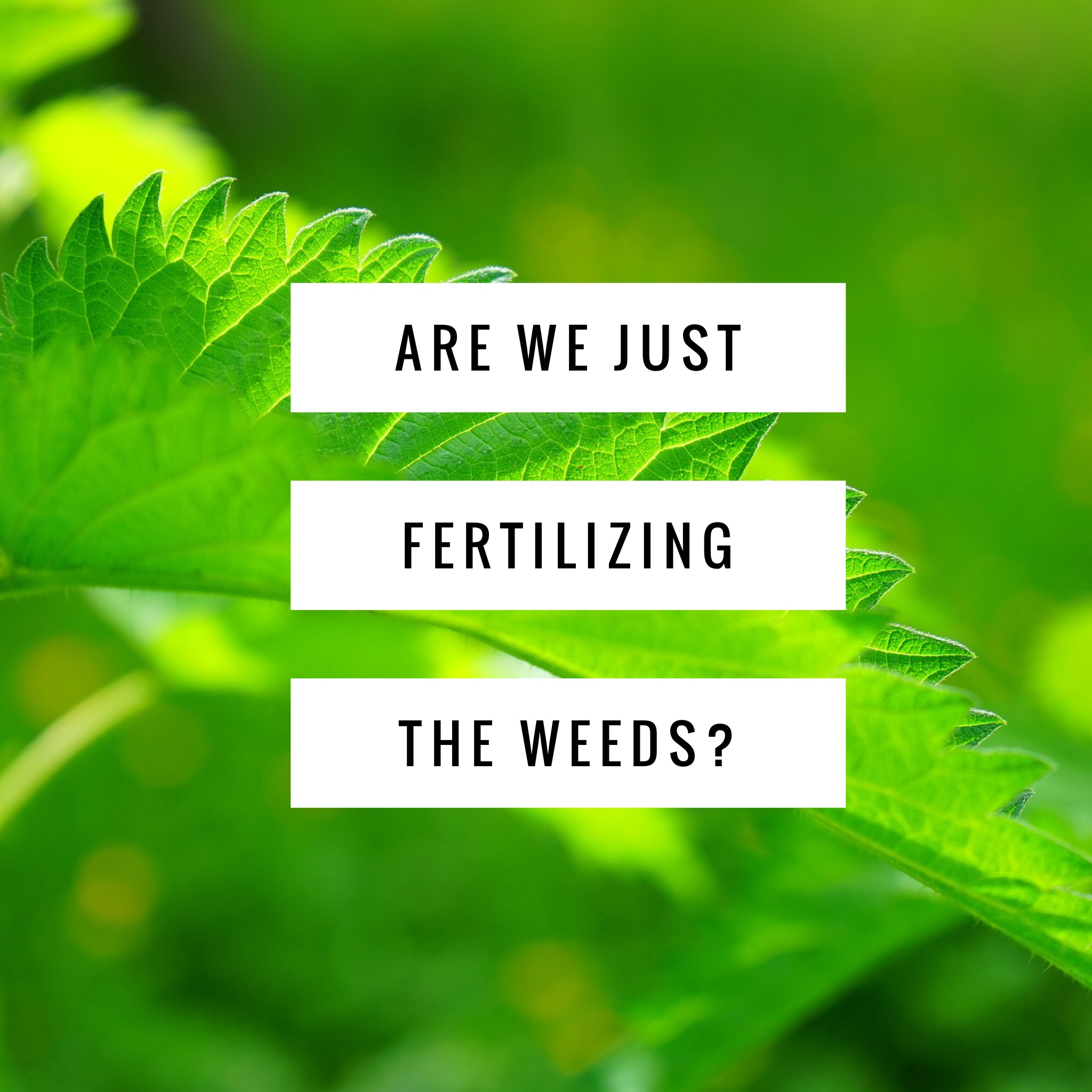How assessments are like weeds and why can’t seem to stop fertilizing them?
How is academic assessment like weeds?

Academic assessment. It’s infiltrated the news and caused quite a stir over the last 15 years. When my youngest daughter was in first grade, I remember her coming home filled with anxiety. “Mom. We have the test tomorrow. I have to do good! My teacher said I have to get to bed early!” “Oh please, honey!” I rolled my eyes. “You’ll go to bed when it’s time and don’t worry about it. It’ll be fine.” “No, but really!” “You’ll be fine and it doesn’t count anyway.” By that point, I had worked in education for almost 20 years. First as a teacher and then a teacher educator. The fact that my 6 year old daughter was put into a tailspin over a test was very concerning to me. So I asked the teacher whose response was, “you’re right, it doesn’t count (for first grade) but we want them to take it seriously.”
It wasn’t for another 5 years or more before I jumped onto the assessment train. When I heard the argument that educators and education had been disrespected for years because we didn’t measure it, I thought, “ok. Maybe they have a point.” If the tests show that students are learning then maybe we’ll get some respect, and some money. Yes. I hear you laughing.
I campaigned for my department faculty to create assessments that measured what they did and aligned to the standards. I rationalized before for them that I knew they didn’t want to focus on assessment but since we have to, we might as well make (the assessments) as good as possible. Some responded by suggesting we all read Reign of Error. They hated creating and endlessly using cookie cutter rubrics for all the assignments that measured all the standards that had to be tracked. (There were an average of 3 per class or 100 across our programs.) I didn’t blame them. But, it was required. And maybe if we did really well, we’d get extra funding. – I’m sure you are still laughing.
Before that daughter went to school, I attended the Software Industry Innovation Awards. While there, I heard a speaker who warned us about standards. I wish I remember who that was, but his words have stuck with me. The warning: when we have standards, we focus on standards; we teach to the standards, and once we reach the standard we move on. Where in the standard is there room for excellence? His argument made sense. I didn’t want to believe it, but I was and am concerned.
I was in my yard the other day and this analogy hit me. The lawn was green but when I looked closer at a wide array of spots, I saw ground-covering weeds. I pulled a weed and found that it was creeping through the blades of grass. It was sprouting countless tiny roots that held on and helped it spread. And as I pulled it away from the grass, I found that it was killing what was underneath. The weed was like our assessments. They are spreading so far across schooling and holding on with such ferocity that they are choking out the curriculum that lies underneath.
Why do we keep fertilizing these weeds? A local curriculum leader told me that their pilot of pushing the curriculum earlier in the year so that more time could be devoted to test preparation had been successful. As a result, he was asked to spread the project to more schools and hopefully further improve achievement. Then, while attending a meeting at our state’s Department of Education I saw the motto hung boldly, and repeatedly, on the walls, “Highest Achievement, Every Child, Every Day”. It made sense. The results are looking good, so we need to keep doing it. The problem is that we keep fertilizing the weeds.
Fifteen years later, the students who have had to focus on testing since first grade are now seniors in college. They have passed the tests, but are they really achieving and are they ready for the world that lies before them? As I look around I see some bright students. But I also see a majority who want to know exactly what’s expected of them so they may regurgitate it and perform as expected. They want to look pretty, but are also not challenged to lay down strong roots. And it’s not their fault. They have been encultured to believe that the assessment is what really, no, all that really counts.
I recognize that not all assessment is bad and that it can be useful when used to further learning. I also believe there is no one solution. In fact, there are many possible paths forward. I believe we all need to look deep and stop fertilizing the weeds that are killing what we know for the sake of making achievement look pretty. And I wish that I had never bought into the argument that education isn’t valued because we don’t measure it because we have measured the hell out of it and I still don’t see additional funding or respect.
But of course, this is just my opinion.

Leave a Reply